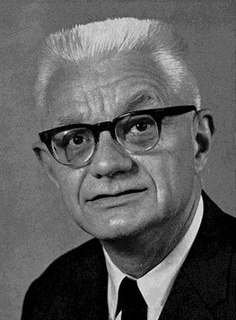A Quote by Gonzalo Rodriguez-Pereyra
There are different interpretations of the problem of universals. I understand it as the problem of giving the truthmakers of propositions to the effect that a certain particular is such and such, e.g. propositions like 'this rose is red'. Others have interpreted it as a problem about the ontological commitments of such propositions or a problem about what those propositions mean.
Related Quotes
Life consists Of propositions about life. The human Revery is a solitude in which We compose these propositions, torn by dreams, By the terrible incantations of defeats And by the fear that the defeats and the dreams are one. The whole race is a poet that writes down The eccentric propositions of its fate.
Our present work sets forth mathematical principles of philosophy. For the basic problem of philosophy seems to be to discover the forces of nature from the phenomena of motions and then to demonstrate the other phenomena from these forces. It is to these ends that the general propositions in books 1 and 2 are directed, while in book 3 our explanation of the system of the world illustrates these propositions.
Unfortunately, philosophers of science usually regard scientific realism and scientific anti-realism as monistic doctrines. The assumption is that there is one goal of all scientific inference - finding propositions that are true, or finding propositions that are predictively accurate. In fact, there are multiple goals. Sometimes realism is the right interpretation of a scientific problem, while at other times instrumentalism is.
Mathematics is a logical method. . . . Mathematical propositions express no thoughts. In life it is never a mathematical proposition which we need, but we use mathematical propositions only in order to infer from propositions which do not belong to mathematics to others which equally do not belong to mathematics.
The propositions of mathematics have, therefore, the same unquestionable certainty which is typical of such propositions as "All bachelors are unmarried," but they also share the complete lack of empirical content which is associated with that certainty: The propositions of mathematics are devoid of all factual content; they convey no information whatever on any empirical subject matter.
It's one thing to assent to propositions like 'The way of things is ineffable', and quite another to internalise what it is being gestured at by such propositions, to get a sense or feel for mystery. For me, at least, it is in and through ways of engaging with nature that this sense is intimated. These ways include being in the garden.
The Syllogism consists of propositions, propositions consist of words, words are symbols of notions. Therefore if the notions themselves (which is the root of the matter) are confused and over-hastily abstracted from the facts, there can be no firmness in the superstructure. Our only hope therefore lies in a true induction.
The question "What shall we do about it?" is only asked by those who do not understand the problem. If a problem can be solved at all, to understand it and to know what to do about it are the same thing. On the other hand, doing something about a problem which you do not understand is like trying to clear away darkness by thrusting it aside with your hands. When light is brought, the darkness vanishes at once.
People have murdered each other, in massive wars and guerilla actions, for many centuries, and still murder each other in the present, over Ideologies and Religions which, stated as propositions, appear neither true nor false to modern logicians- meaningless propositions that look meaningful to the linguistically naive.
A religion is a source of happiness and I would not deprive anyone of happiness. But it is a comfort appropriate for the weak, not for the strong--and you are strong. The great trouble with religion--any religion--is that the religionist, having accepted certain propositions by faith, cannot thereafter judge these propositions by evidence. One may bask at the warm fire of faith or choose to live in the bleak uncertainty of reason--but one cannot have both.































